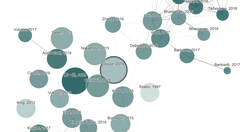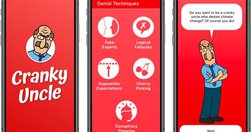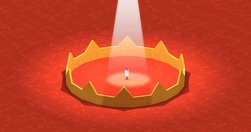Overview: Online Strategy
How should your online presence be shaped?
Is your website working? Do first-time visitors understand what you do, and find the content they need, before clicking away? If not, should you tweak your site or build a new one?
Perhaps you should spend more resources on social, but to do what: engage your audience, convene a community, or simply broadcast your website content?
How can you do both so that your social media presence and your website work together? And what are you measuring, so that you continuously improve?
Need help? Get in touch.
More services: start with Communication strategy.
Relevant resources

unique, visual tool to help researchers and applied scientists find and explore papers relevant to their ... work... analyze ... ~50,000 papers and select the few dozen with the strongest connections to the origin paper.... arranged according to their similarity... papers that do not directly cite each other can be strongly connected and very clo…

The Cranky Uncle smartphone game is currently being developed... teach you to throw the arguments of even your crankiest climate-misinformed uncle back at him... let’s learn the arguments of denial to defeat them...cartoons and gameplay to interactively explain the denial techniques used to cast doubt on climate science... ‘active inoculation’ — l…

intellectual humility, the crucial characteristic that allows for admission of wrongness... crucial for learning... difficult to foster... a virtue worth striving for... entertaining the possibility that you may be wrong and being open to learning ...actively curious about your blind spots... It’s about asking: What am I missing here? our reali…
"Since it launched in March 2012, I F*cking Love Science has attracted more than 17.9 million Facebook followers—more than Popular Science (2.7 million), Discover (2.7 million), Scientific American (1.9 million), and The New York Times (8 million) combined. ... Her empire has since expanded to include a website, IFLscience.com, which has a staff a…

Nice animation about the uncertainty principle, although it’s not mentioned by name, confirmngi the theory that chemistry is what’s left when the physicists have figured everything interesting out ;)

An alternative to Popular Science's approach: "Climate change articles trigger some of the most heated discussions on Ars Technica... a scientific matter with political ramifications, it's also the focus of astroturfers (fake grassroots movements), trolls, and the willfully scientifically illiterate. At Ars, we take trolling very seriously... we…
"But even a fractious minority wields enough power to skew a reader's perception of a story, recent research suggests. In one study led by University of Wisconsin-Madison professor Dominique Brossard, 1,183 Americans read a fake blog post on nanotechnology and revealed in survey questions how they felt about the subject (are they wary of the benef…